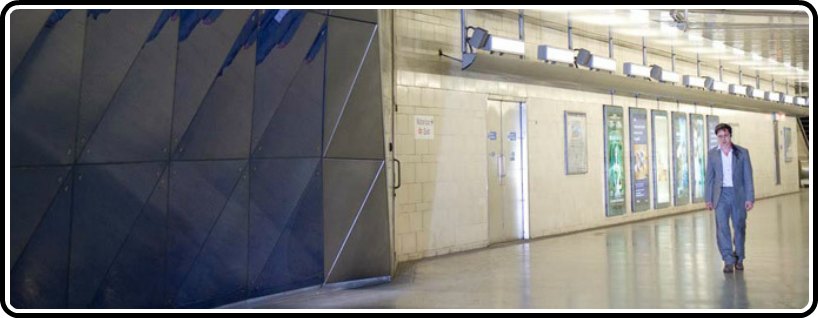Throughout a director’s career, there are often times peaks and valleys. However, very few filmmakers have had as divisive a career as director Danny Boyle.
With early gems ranging from the neo-noir Shallow Grave to the classic horror masterpiece 28 Days Later, Boyle has become one of the most beloved and singular voices in his craft. Putting his toes into genres ranging from science-fiction (Sunshine) to romance drama (Slumdog Millionaire), the Oscar-winning filmmaker has even been behind an Olympic ceremony and a stage adaptation of the legendary Frankenstein tale. I guess what this is meant to drive at is that he’s one of the most sought after voices in all of film.
Too bad his new film doesn’t live up to the hype.
Seeing Boyle return to the world of neo-noir, Trance tells the story of Simon, a fine art auctioneer who ends up connecting with the wrong crowd. After accruing some rather large gambling debt, he teams with a gangster to steal a painting worth millions. However, when the heist goes wrong, he suffers a concussion only to forget where he hid the piece. When he goes to a hypnotherapist, his life beings to unravel, and what follows is a silly meditation on noir’s genre trappings and free will all in the body of an ugly mess of a thriller.
http://www.youtube.com/watch?v=L4_bdS3_gr0
While very much a Boyle picture, that in and of itself appears to be the film’s biggest issue. Boyle is this film’s biggest problem. Unable to add anything remotely resembling tension to the narrative, he takes a hamfisted and dull screenplay from the pair of Joe Ahearne and John Hodge and turns it into a neon-hued thriller that is as thrilling as a candy-induced headache. Featuring all of Boyle’s stylistic cues, he brings this already cliché-ridden noir into the mud, opting for lifeless photography from the usually stellar Anthony Dod Mantle and production design that seems more interested in giving the viewer a look at interesting sets than anything resembling a tactile world.
However, the film’s biggest sin is that it is as easy to call it silly as it is to describe it as a “thriller.” Weaving an admittedly web-like narrative, the film ultimately spends its entire final act telling us about the previous 80 minutes, instead of simply allowing the viewer to connect the oddly visible dots. Discussing everything ranging from free will to modern art’s “imperfect” portrayal of the female figure, the film opens with a rather thrilling heist sequence, only to lose all momentum once the plot begins to unravel. Filled with telegraphed plot twists and limp-wristed action sequences, Boyle’s picture is as vital and full of life as the paintings it so deeply respects.
Boyle does, however, seem to have a way with genre. After dealing with noir in pictures like Shallow Grave, he gets a screenplay here that while dull, does allow him to toy around with noir and its tropes. Expectations are somewhat subverted as the plot unfurls, and the character of Elizabeth, the therapist, as well as the film’s main villain, become quite intriguing, at least for fans of film noir. They are ultimately undone by a pair of writers who attempt to be clever instead of offering up true payoff, but noir fans will definitely get a kick out of Boyle’s experimentation with the genre.
http://www.youtube.com/watch?v=oSJW43zEcBo
Also, the cast does elevate the material somewhat. The biggest star here is Rosario Dawson in what may be one of her better performances, while also being one of her more odd turns as Elizabeth. Seemingly willing to hypnotize anyone and everyone given her lush voice and constant composure, she is intriguing from the very moment we lay eyes on her, and she only becomes more interesting as the film unfolds. Her character falls apart near the start of the film’s final act, but attribute that to the film’s ending as a whole, as the picture itself falls off the tracks at about the same moment. James McAvoy is our lead here, and is the physical manifestation of the film’s overall lack of vigor. With no cause for connection with the audience, Vincent Cassel’s baddie, Franck, becomes the film’s real sense of heart come the final act, something unforeseeable given the premise. Relationships lack any depth or truth here, and while there are glimmers of a great thriller, the film is undone by a dull lead and a filmmaker unwilling to connect with his audience.
With a solid score from Rick Smith, Trance is yet another misstep by a director who appears to be reeling. Coming off the equally mediocre Slumdog Millionaire and 127 Hours, Danny Boyle’s newest film is an empty thriller that is the equivalent of eating fast food. You sit down, consume some truly empty calories, and then toss the experience away as you walk out.




![Bergman Island (The Criterion Collection) [Blu-ray]](https://criterioncast.com/wp-content/uploads/2022/11/bergman-island-the-criterion-collection-blu-ray-400x496.jpg)
![This Is Not a Burial, It’s a Resurrection (The Criterion Collection) [Blu-ray]](https://criterioncast.com/wp-content/uploads/2022/11/this-is-not-a-burial-its-a-resurrection-the-criterion-collection-blu-ray-400x496.jpg)
![Lars von Trier's Europe Trilogy (The Criterion Collection) [The Element of Crime/Epidemic/Europa] [Blu-ray]](https://criterioncast.com/wp-content/uploads/2022/11/lars-von-triers-europe-trilogy-the-criterion-collection-the-element-of-400x496.jpg)
![Imitation of Life (The Criterion Collection) [Blu-ray]](https://criterioncast.com/wp-content/uploads/2022/11/imitation-of-life-the-criterion-collection-blu-ray-400x496.jpg)
![The Adventures of Baron Munchausen (The Criterion Collection) [4K UHD]](https://criterioncast.com/wp-content/uploads/2022/11/the-adventures-of-baron-munchausen-the-criterion-collection-4k-uhd-400x496.jpg)
![Cooley High [Criterion Collection] [Blu-ray] [1975]](https://criterioncast.com/wp-content/uploads/2022/11/cooley-high-criterion-collection-blu-ray-1975-400x496.jpg)